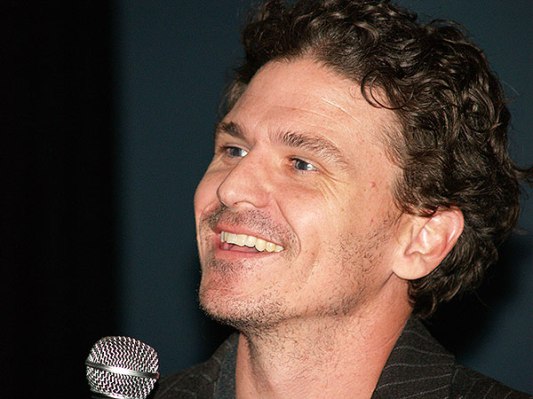One of the weirder things to come out of all the discussion around Dave Eggers’ upcoming novel The Circle (which focuses on life at a fictional tech company) has been the accusation by Kate Losse that parts of Eggers’ book are lifted from The Boy Kings, her memoir of her experience as an early Facebook employee.
McSweeney’s, the San Francisco-based publishing company that Eggers founded, just sent me a statement from Eggers denying that he read Losse’s book at all. To be honest, I’ve found Losse’s claims to be pretty unpersuasive (more on that in a second), but the statement also includes some interesting commentary about the research that Eggers did (or didn’t) do for the novel, so I figured it was worth noting. Here it is:
I’ve just heard about the claims of Kate Losse that my novel, The Circle, was somehow based on a work of nonfiction she wrote. I want to make it clear that I have never read and have never heard of her book before today. I did not, in fact, read any books about any internet companies, or about the experiences of anyone working at any of these companies, either before or while writing The Circle. I avoided all such books, and did not even visit any tech campuses, expressly because I didn’t want The Circle to seem to be based on any extant companies or upon the experiences of any employees of any extant companies. Because The Circle has not been released, it’s my understanding that Kate Losse has not read my novel yet, so I trust that when she does read it she’ll understand that I have not read, and certainly never lifted anything from, her book.
This denial probably won’t persuade people who seem to agree that there are suspicious parallels between Losse’s book and Eggers’, so maybe we should take a closer look at the claim. As noted in the statement, Losse says she hasn’t read the book (the official publication date is Oct 8), so she’s basing her accusation on an excerpt published in The New York Times Magazine, and she posted quotes from The Boy Kings, with annotations highlighting similarities.
Losse first notes that like her, Eggers’ protagonist is hired to work in customer experience/support at a tech company, which isn’t exactly a telling or hugely specific detail — when I left Stanford in 2006, applying for those jobs was one of the default paths for liberal arts graduates who didn’t know what they were going to do with their lives. (True story: I applied for multiple customer support jobs at Google and was rejected for all them.)
That first note also says, “Her name eerily echoes mine in its phonetic structure: Katherine Penney Losse/Maebelline Renner Holland & in short form as well: ‘Kate Losse/Mae Holland.'” Hmmm.
Losse’s next annotation notes that both books include scenes where someone (Jake in Losse’s book, Jared in Eggers’) tells the new employee what their job will be like. The one after that points out that both books include discussions of company passwords. And so on.
It all seems to me, at least, to consist entirely of broad parallels covering experiences that will be familiar to many TechCrunch readers. I’m not trying to dismiss some of the bigger issues of cultural appropriation that Losse brings up, but I’m not sure an unconvincing claim that someone is “ripping off” your book is the best arena for that discussion.
The other interesting thing about Eggers’ statement is that he goes out of his way to deny doing any research related to specific tech companies, whether it’s reading books or visiting offices. That might dampen the enthusiasm of writers who see his portrayal of the book’s sinister tech company (also called The Circle) as a way to take “vengeance” on Google and Facebook. Eggers seems to be arguing that he isn’t attacking any particular company, and that the book is meant to be a broader critique of tech trends and culture.
Of course, if you wrote a novel implying that Facebook and Google are evil, it might just be easier to disavow any specific attack and let others make the comparisons.
[Photo: David Shankbone]
